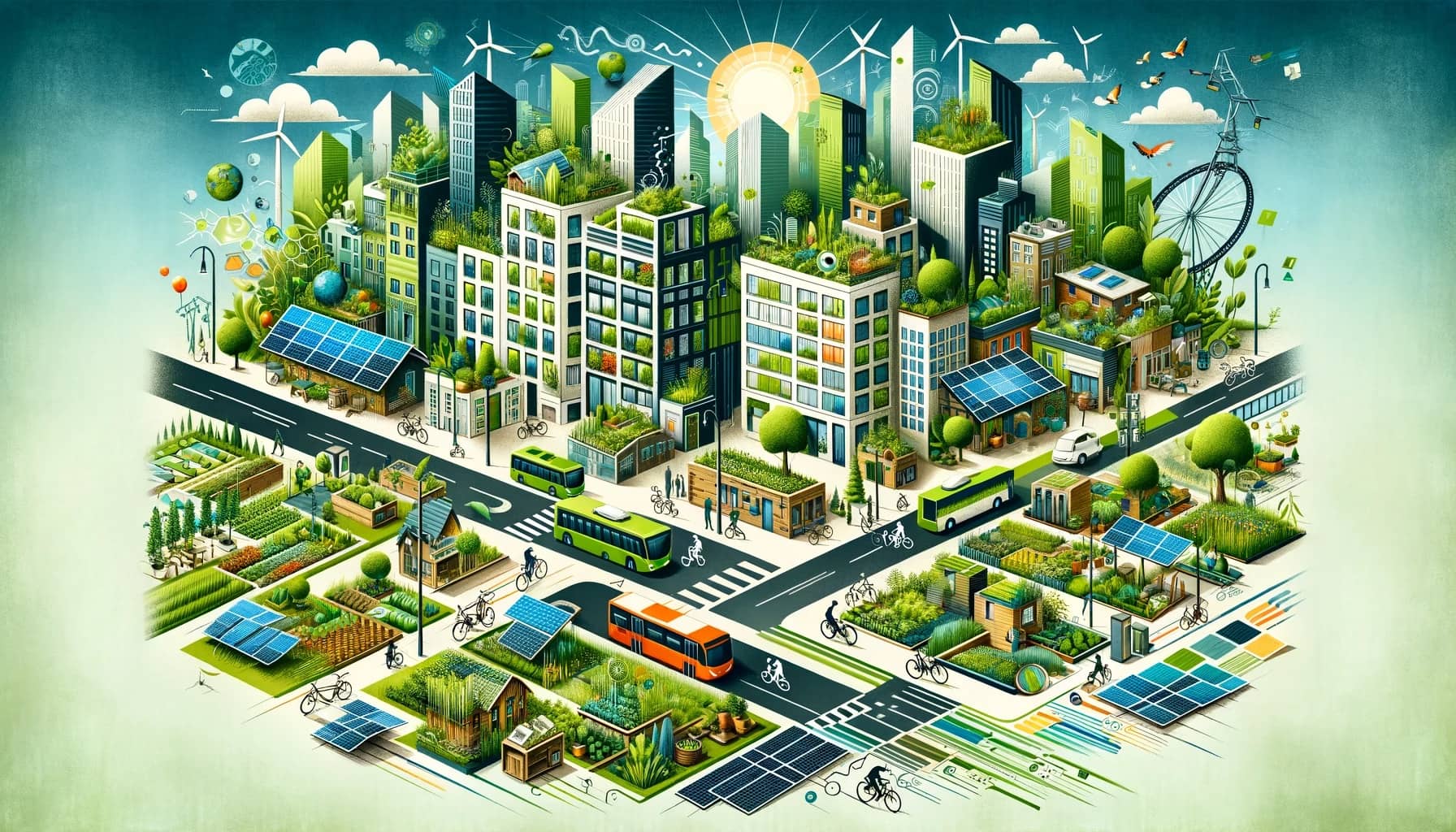The EU launched the European Green Deal with the aim of making Europe climate neutral by 2050. This plan includes strategies for reducing greenhouse gases, promoting sustainable energy, and protecting nature.
The EUDR (European Union Deforestation free Regulation), plays an important role in this objective. This European Regulation regulates the import and export of wood, cattle, cocoa, coffee, palm oil, rubber, soy and derivatives. All these raw materials are often the cause of deforestation and forest degradation to a greater or lesser extent. The EUDR contributes to the European Green Deal by promoting sustainable trade practices and therefore has a global impact.
Key elements of the European Green Deal
The European Green Deal is a comprehensive, multi-element strategy aimed at transforming the European Union into a sustainable and climate-neutral economy. Each component plays a crucial role in achieving the ambitious goals of the Green Deal:
- Clean Energy: The transition to clean and renewable energy sources is a fundamental part of the Green Deal. This includes increasing investments in renewable energy technologies such as wind and solar energy, improving the energy efficiency of buildings, and supporting the transition to a clean energy supply.
- Sustainable Industry: The Green Deal aims for a sustainable industrial strategy, with an emphasis on the circular economy. This means that products and materials are reused and recycled to minimize waste. Innovation in sustainable technologies is stimulated to help companies reduce their ecological footprint.
- Biodiversity: Protecting biodiversity and restoring natural ecosystems is another essential element. This includes tackling the degradation of natural habitats and protecting endangered species. Policies aimed at restoring biodiversity also include the promotion of sustainable agricultural practices.
- Sustainable Mobility: Promoting sustainable mobility is an important aspect of the Green Deal. This includes measures to encourage the use of clean and sustainable modes of transport such as electric vehicles and reducing transport emissions.
- Climate Adaptation: Adapting to the inevitable consequences of climate change is also an important focus. This includes developing strategies to build climate-resilient infrastructure and support communities in dealing with climate-related challenges.
- Pollution: Combating pollution in all forms is another important goal. This includes measures to improve air quality, reduce harmful emissions, and strive for a toxic-free environment.
The EUDR within the European Green Deal
The EUDR focuses on combating deforestation and forest degradation. It sets requirements for the import and export of products that are responsible for this. These regulations are essential for protecting the environment and the climate.
The EUDR reduces the dependence of the EU market on products that promote deforestation or forest degradation. It encourages sustainable business practices and has a positive impact on global climate efforts.
Global Impact of the EUDR
The impact of the EUDR extends to virtually all parts of the world, especially countries where deforestation and forest degradation occur on a large scale. The five main countries outside Europe likely to be most affected by the EUDR are:
- Brazil: As one of the largest exporters of soy and beef, whose production often leads to deforestation, Brazil will likely need to make significant changes to meet EUDR standards.
- Indonesia: Known for its palm oil production, a process that often results in the clearing of tropical forests. As a result, Indonesia will be strongly influenced by the EUDR.
- Democratic Republic of Congo: This country, with vast rainforests, is under pressure from the extraction of timber and other raw materials, allowing the EUDR to play an important role in reducing deforestation.
- Malaysia: As another major producer of palm oil, Malaysia will feel the effects of the EUDR, especially in terms of exports to the EU.
- China: Not only as an exporter, but also as a major importer of raw materials and products covered by the EUDR, China may have to revise its export and import policies to comply with the new EU regulations.
The EUDR influences trade by promoting sustainability. This has effects such as:
- Sustainable Trade: Obligation for companies to trace the origin of raw materials.
- Climate impact: Maintaining forests reduces greenhouse gas emissions.
- Biodiversity: Protects ecosystems and prevents habitat destruction.
The EUDR promotes a global shift towards more sustainable practices, not only by reducing demand for products that contribute to deforestation, but also by encouraging transparency and accountability in supply chains. This strengthens global efforts against climate change and promotes the protection of forests and biodiversity worldwide.
Conclusion and Future Prospects
The European Green Deal and EUDR provide a solid foundation for sustainability in Europe and beyond. These initiatives demonstrate a shift towards environmentally friendly economic and social development.
Future success requires continued commitment from governments, companies and individuals. The European Green Deal and EUDR provide an example for achieving ambitious climate goals through cooperation and innovation. Their impact leads to a healthier and more sustainable world, economic resilience and social justice.


